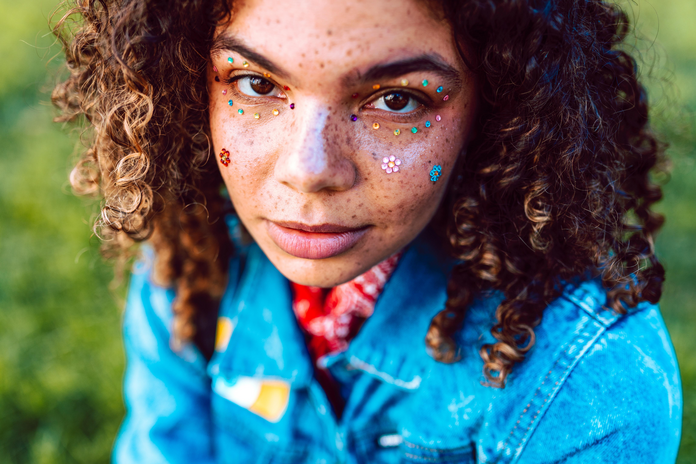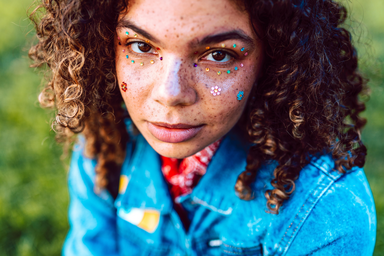Hair is an integral part of our everyday lives. It’s a form of self–expression, self–empowerment, and just a fun part of getting ready in the morning. But in a world tainted by systemic and cultural racism, race–based hair discrimination has dictated white–washed beauty standards.
In December, a new Oregon law will make it illegal in workplaces and educational institutions to discriminate against Black people for their hairstyles.
This law is enacted in light of the CROWN Act (Creating a Respectful and Open World for Natural Hair Act), which was created in 2019 by Dove and the CROWN Coalition to prevent race–based hairstyle discrimination. The CROWN Act specifically extends statutory protection to styles like braids, locs, twists, and knots in public schools and the workplace.
Originally passed by State Senator Holly J. Mitchell of California, the CROWN Act and similar legislation was then passed by 11 other states: New York, New Jersey, Virginia, Colorado, Washington, Maryland, Delaware, Connecticut, New Mexico, Nebraska, and Nevada. Sixteen other states — Florida, Georgia, Illinois, Kansas, Kentucky, Louisiana, Massachusetts, Michigan, Minnesota, Missouri, Oregon, Pennsylvania, South Carolina, Tennessee, Washington, West Virginia, and Wisconsin — are also considering enacting a similar version of the CROWN Act.
But the CROWN Act isn’t just a racially equitable law; it’s also an important social commentary on society’s racial biases and how we should actively counter them.
Anti–black hair sentiment has been historically entrenched within America. In the 1700s, enslaved Black women working in the fields were forced to cover their hair in head–rags, while women working in the household often wore wigs to mimic the straight hair of their enslavers. In 1786, the Tignon Laws of New Orleans forced women to wear a tignon (a scarf) to cover their hair to signify that they were of the “enslaved class.”
In the 1920s, Madam Walker, a Black female entrepreneur from Louisiana, popularized the hair–straightening comb to “tame” black hair. This cemented straight hair as the primary hairstyle to signal middle-class status and economic opportunities for Black women.
The first wave of the natural hair movement began in the 1960s. Activists like Marcus Garvey, Angela Davis, and James Brown encouraged women to wear their natural hair as a weapon in the fight for racial equity. The afro especially became an icon of self–love and Black solidarity.
But with the onset of the television and mass communication era, the 1980s introduced “hair–care” advertisements that promoted pressed comb, weaves, and permed hair. By presenting straight hair as “healthy,” these ads intrinsically associated self–care with White beauty standards. The straightening processes demonstrated in these ads were also very costly and destructive. The methods are often expensive and can cause hair breakage, scalp disease, and other dangerous hair health complications.
This racist mindset didn’t end with the 1980s. According to a 2019 Dove study, Black women are 1.5 times more likely to be sent home from a workplace because of their hair. This caused a total of 80 percent of survey respondents to change their hair, mainly by straightening or ironing their hair.
Hair discrimination is especially prevalent in the workplace. Black women with their natural hairstyles are more prone to being fired from their jobs or have job offers rescinded. Black women’s hair is also 3.4 times more likely to be perceived as “unprofessional,” regardless of their qualifications.
This has caused many Black women to feel policed in the workplace, worry that their hair is being targeted, and have a persistent fear of being judged or discriminated against for their natural hairstyle. And on a general basis, Black women are much more likely to feel anxious or insecure about their hair than White women.
But it’s not only the workplace that perpetuates hair discrimination. K–12 schools often punish Black girls for their natural hairstyles through bans, detentions, or unreasonable demands. In 2017, a charter school near Boston repeatedly issued detentions to Black girls who wore their hair in braided extensions — an alleged violation of the school’s dress code. In 2018, a Black girl in Louisiana was removed from school due to her braided extensions. In 2019, a public elementary school in Atlanta featured photos of Black girls with braids as an example of “inappropriate” haircuts.
These instances are but a few of thousands — the main difference being that most other incidents of race–based hair discrimination aren’t even reported, simply because they’ve become normalized. The influx of dress codes, workplace “standards of conduct,” and other racist policies in schools and the workplace all use euphemisms to tell Black women the same thing: in order to advance themselves in their education or job, they must smother their racial or cultural identity by changing their natural hair.
What’s more disturbing is that the courts consistently refrain from penalizing this. Hair discrimination cases that have gone to court are often unsucessful, which is why the CROWN Act was an important first step.
But there’s still much work to be done. In 2019, the CROWN Act was passed in the U.S. House of Representatives, but failed the Senate. It was reintroduced in Congress in March 2021 and is still pending.
Promoting inclusive beauty standards is multifold. It looks like actively challenging implicit or explicit biases, questioning subconscious stereotypes, directly countering people who seem racially biased, and voting for equitable legislation like the CROWN Act.
Because at the end of the day, all hair is beautiful: straight, wavy, curly, braided, and everything in between. This is because beauty lies within the power of a woman’s choice. So long as a woman decides to wear her hair in whatever way makes her feel confident, she is unapologetically herself — and she is beautiful.

